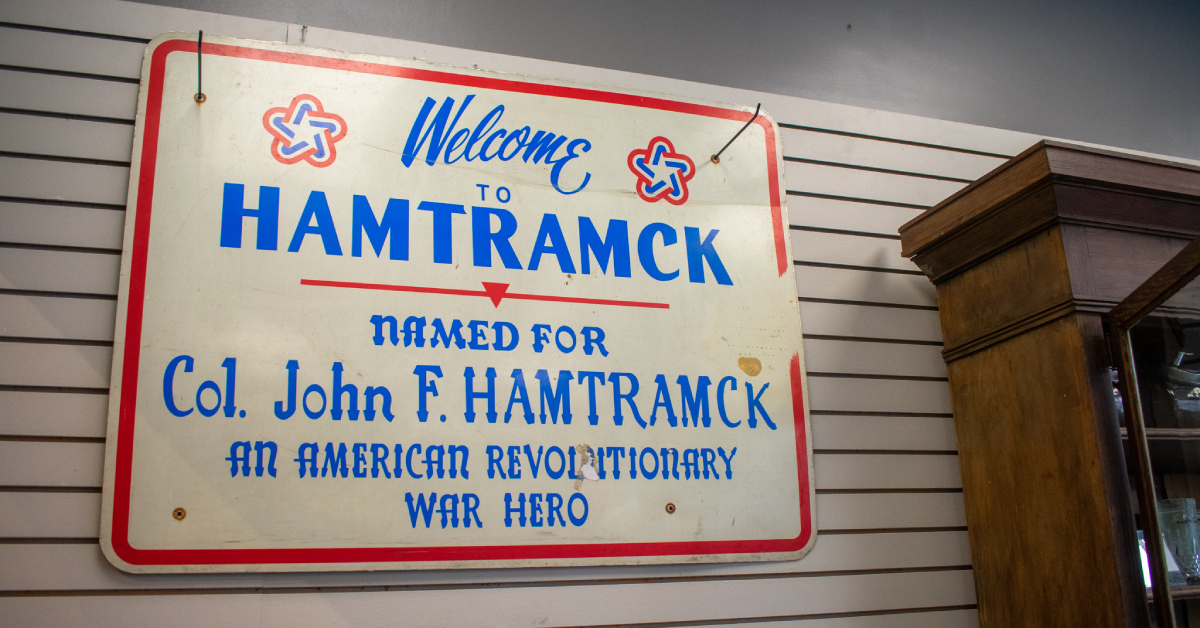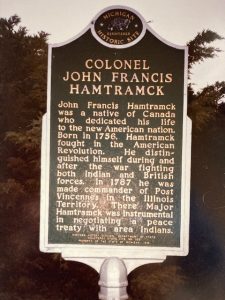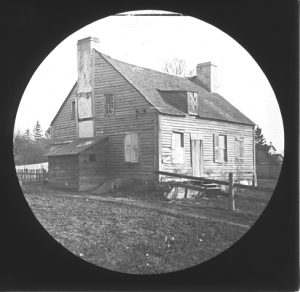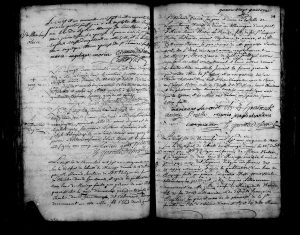CuriosiD: Where does the name ‘Hamtramck’ come from?

Nate Pappas, WDET
The City of Hamtramck was named after Colonel Jean Francois Hamtramck. Is “Hamtramck” a French name?
WDET’s CuriosiD series answers your questions about everything Detroit. Subscribe to CuriosiD on Apple Podcasts, Spotify, NPR.org or wherever you get your podcasts.
In this episode of CuriosiD, listener Eric Reed asks…
“Where does the name Hamtramck come from?”
The short answer
Hamtramck is a city surrounded by Detroit. It was named after a French Canadian Colonel Jean Francois Hamtramck.
Hamtramck’s Namesake
The City of Hamtramck is named after a French-Canadian named Jean Francois Hamtramck. If you Google the origins of Hamtramck you’ll find some answers that say the surname Hamtramck is French. Some people also think it’s Polish.
Greg Kowalski, the executive director of the Hamtramck Historical Museum, says the Polish origin is not accurate.
“A lot of people think it’s Polish because Hamtramck has a reputation for being a Polish community, but it is definitely not.”
In the early 1900s, the city had a large makeup of Polish people. By the 1970s the city had a 90 percent Polish population.
According to the latest Census, about 56 percent of residents in Hamtramck are white – which includes about 40 percent of people of Yemeni descent, and 24 percent Asian Americans, primarily from Bangladesh. The city has many residents from other South Asian, Middle Eastern and Eastern European countries.
Kowalski says that in order to understand where the word Hamtramck comes from, we need to first learn more about the town’s namesake.
Who was Jean Francois Hamtramck?

Jean Francois Hamtramck traveled down from Canada to fight for the Americans in the Revolutionary War. When he did so, he changed his name to John Francis Hamtramck, presumably so it would sound more American.
He later went on to take part in the Northwest Indian War, which ended in 1795. A year later he came to Detroit to remove British settlers who did not leave after the end of the Revolutionary War. Colonel Hamtramck took over ‘Detroit’ on July 11, 1796.

In 1798 Hamtramck Township was created and named after him to honor his service. The City of Hamtramck was later established in 1922.
Kowalski says that while it’s well known who the city is named after, it’s hard to determine where Hamtramck’s last name came from.
“We’re really not sure what the origins of that name are. We know that the family came from Europe and their connections to Luxembourg. But the name doesn’t seem to have any, like the ethnic connotation that we’ve been able to determine.”

Knowing that the name has ties to Luxembourg makes the origins ambiguous because the country is multi-ethnic. There are three official languages spoken there: French, German and Luxembourgish. The name Hamtramck could have come from any of those cultures.
Hamtramck’s Family Origins

Candace Marx is the owner of Timeless Treasure Genealogy Services in Aurora, Illinois, where there’s a sizable Luxembourger population.
“At first glance, I thought it might be a Luxembourger name,” Marx says.
Marx explains Hamtramck’s parents were Charles David Hamtramck and Marie Ann Bertin. Their 1753 marriage record shows that Charles was from Luxembourg City, Luxembourg, which at the time had ties to the Catholic Church in Germany.
“It [Hamtramck] looks Germanic, but it’s just kind of a mystery because I can’t really pinpoint where it was from and it’s definitely possible that the name was changed.”

This would happen during the early days of immigration when a clerk in the immigration office would hear a person say their name and write it down phonetically. The name could have evolved based on who heard it.
This appears to have happened with the surname Hamtramck. An article published in 1889 showed Hamtramck’s paternal grandfather as David Hamtrenck.

Marie Cappart is one of the managers for the genealogy site MyHeritage. She says it’s a little easier to break down the origins of Hamtrenck rather than Hamtramck.
“Most probably in that border of Germany- Luxembourg they would hear it as Ham-Tank,” she says.
Hamm is a city in Germany. It’s also a quarter in Luxembourg City, where Hamtamck’s father once lived.
“The suffix Trenck, in the surname, it’s ‘mean drinks’ in German. Ham being you know, ham then it doesn’t really make sense, unless it’s Ham linked to a name of a place.”
A rare commodity
Cappart says both Hamtramck and Hamtrenck are rare last names. When she looked them up, she wasn’t able to find anyone with them today. There was a family in New York in the 1920s with the last name Hamtramck.
She says the city itself may be Hamtramck’s only surviving namesake.
“It means that the town has really something unique in the world in preserving that surname that most possibly has died out,” said Cappart.
The Colonel has roots in Hamtramck beyond his name.

Kowalski says in May that the museum held a rededication of Jean Francis’ grave, adding a new marker for the city’s 100th anniversary.
“He is buried at the Veterans Memorial Park and right in the heart of Hamtramck, and he was moved here in 1962 from Mt. Elliott cemetery in Detroit. So [if] you want to stop by and say hi, you can do that.”
While Colonel Hamtramck passed away in 1803, his legacy still lives on in name and spirit.
Meet the listener
 Eric Reed of Port Huron, a former high school French Teacher, was skeptical about “Hamtramck” being a French name.
Eric Reed of Port Huron, a former high school French Teacher, was skeptical about “Hamtramck” being a French name.
“First of all, the H-A-M, is an unusual syllable in French. There’s no way that an ‘m’ can come before a ‘t’ in French. I wanted somebody to explain how that name Hamtramck could be French in any way, shape or form.”
We want to hear from you!
For an upcoming episode of CuriosiD, we want to know what questions you have about the Nov. 8 elections and Michigan’s election process. Call 313-403-5747 and leave us a voice message or record a voice memo on your phone and email it to CuriosiD@wdet.org. You can also fill out our survey by Aug. 24 by clicking here. We might include your comments in a future CuriosiD episode!
Have a general question about Detroit? Ask us here.
More from CuriosiD:
- Why do Hamtramck and Highland Park exist inside the city of Detroit?
- CuriosiD: What happened to the swimmobiles in Detroit?
- Who is painting the “Corn Real Good” signs?
- Are there salt mines under Detroit?
Trusted, accurate, up-to-date.
WDET strives to make our journalism accessible to everyone. As a public media institution, we maintain our journalistic integrity through independent support from readers like you. If you value WDET as your source of news, music and conversation, please make a gift today.
